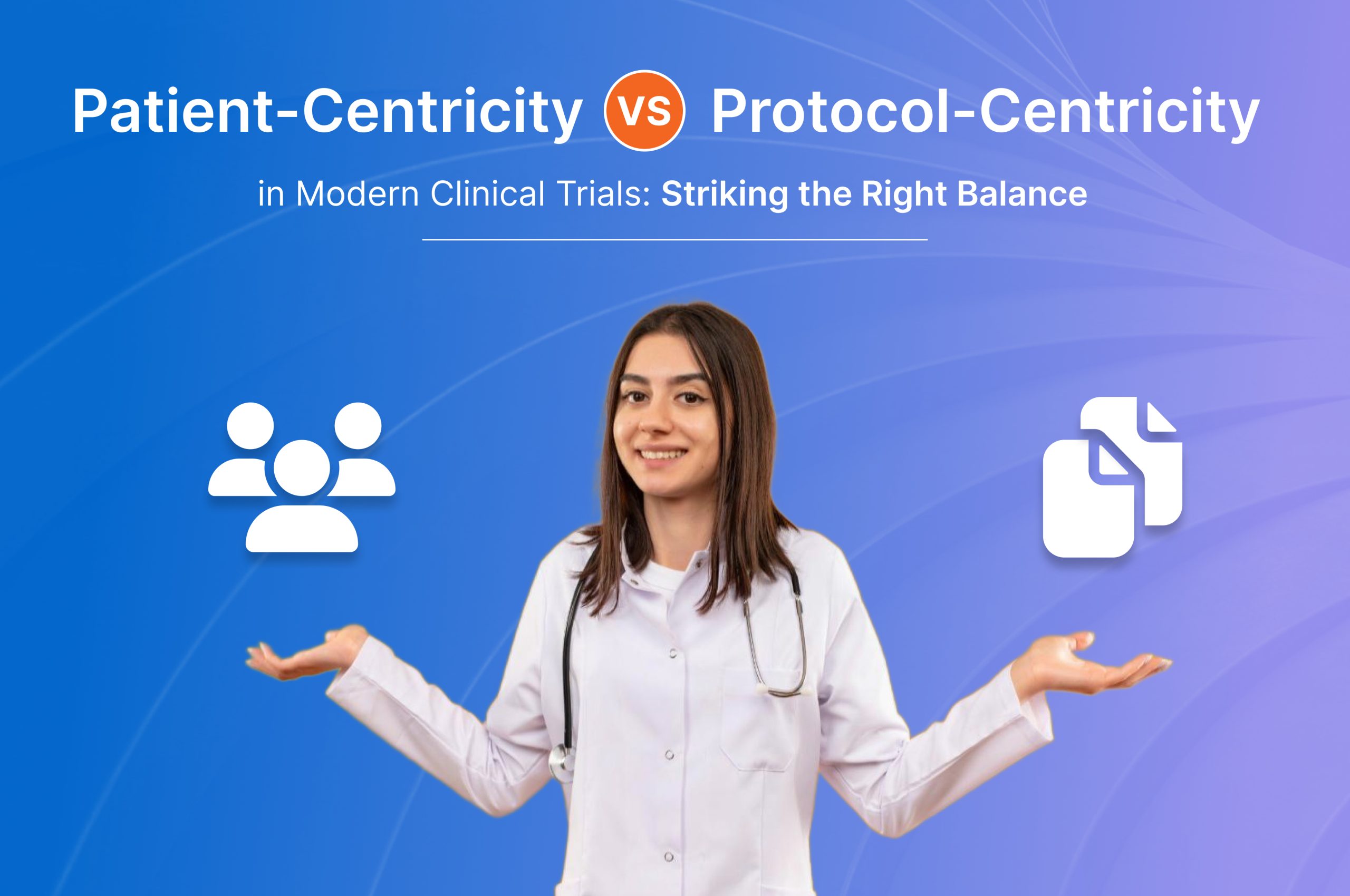Life sciences companies are facing increasingly difficult times. Consumers and policymakers are putting increasing pressure on the pharmaceutical industry to slash medicine prices, reduce time-to-market for new drugs, and comply with increasingly onerous regulations. As a result, the clinical research ecosystem is attempting to improve trial outcomes and patient experience while lowering trial costs, better managing underlying risks, and shortening product development lifecycles.
The good news is that trial sponsors and contract research organizations (CROs) such as yours may now use commercially viable digital technology and design principles to radically reinvent existing operating models for improved trial efficacy. In this context, consider some of the following key trends affecting clinical trials:
1. Design thinking
Across industries, companies are reinventing their whole value proposition around the concept of customer experience, working tirelessly to deliver superior, differentiated, and pleasurable encounters across many touch points. As a result, some of the world's largest pharmaceutical companies have begun to employ design thinking to improve patient experience during clinical studies. The primary concept here is to ensure that studies are focused on the patient rather than the medicine being evaluated. This entails regularly interacting with subjects and spending more time on-site to discover current gaps and design solutions iteratively.
To emulate trial techniques, Eli Lilly has developed a collaborative venture called CoLAB. During this activity, the pharma company's clinical research teams gather information about trial features such as study visits, samples, and drug dosing from patients, study coordinators, physicians, and other external partners. As a result, Lilly duplicates both the site and the patient experience, addressing trial pain points such as screening and baseline visits, as well as dose changes. The company thinks that this design thinking-based strategy will help speed up studies, increase patient happiness, avoid protocol changes, and achieve or surpass enrollment timelines.
2. Artificial intelligence (AI)
Chatbots, virtual assistants, and other AI-powered, self-learning computers are popping up everywhere, from e-commerce and online banking sites to consumer mobile apps. These machines are also making an appearance in clinical studies. Businesses can now use AI to map and examine molecular structures in order to formulate drug solutions more quickly, hence speeding up the initial discovery and testing process in trials.
Stanford University has constructed a bioinformatic map of common diseases by accessing huge amounts of raw data from diverse sources and analyzing it to identify recurring phenotypes and other patterns.
AiCure, for example, is creating medication adherence solutions that use AI facial recognition to confirm if patients have taken the correct medication. Such solutions are expected to promote better adherence to trial parameters, resulting in better outcomes and more effective remote monitoring support.
3. Robotics
Conducting trials quickly and at a lower cost is definitely one of the industry's top priorities for the future. And robots are here to help! MIT has developed a robot to assess the efficacy of medications intended to treat acute strokes or aid in the recovery from cardiac arrests.
Such technologies could assist sponsors in making early judgments on whether to continue using a certain treatment or try alternate therapeutic avenues. According to MIT, this could lead to a 70% reduction in the number of patients required to be examined, cutting trial completion time and associated expenses.
Likewise, Boston Children's Hospital has launched Huggable, a robotic teddy bear, to engage children during clinical visits and relieve their worry and discomfort, resulting in a more enjoyable trial experience. The hospital used this therapeutic tool as part of a randomized pediatric trial to measure physiological changes and patient reactions and to assess the therapeutic usefulness of social robotics in such situations.
4. Wearables
Wearables are now being used by pharmaceutical and biotech companies to obtain tailored, high-quality patient data on the fly. Last year, Sanofi conducted a totally remote clinical study in Europe for diabetic patients to evaluate a 3G-enabled wireless blood glucose monitor.
Teva, an Israeli pharmaceutical company, is collaborating with Intel to develop wristwatches and other wearables that detect and track the daily activities of patients suffering from
Huntington's disease, Parkinson's disease, and epilepsy. The company plans to mine these vast data sets using powerful algorithms and data analytics technology to find disease patterns that may be useful in future studies.
5. Mobility
Consumers are getting more comfortable with the idea of sharing personal health information with trustworthy service providers as they rely more on their mobile devices for a variety of activities. Realizing this vital trend, pharmaceutical companies are aggressively utilizing mobile messaging and social media for patient recruitment and investigator contacts in order to increase pre-trial enrolment and reduce subject dropouts during trials.
At the same time, pharma and biotech firms are employing smartphone apps to remind patients of visits and drug schedules and send instructions.
6. Cloud computing
Cloud computing is being used by stakeholders across the clinical trial value chain to host various applications and infrastructure, as well as to promote smooth integration and cooperation with external partners. The R&D function, in particular, is garnering a lot of attention in this area, with pre-competitive collaborative consortia like TransCelerate developing cloud-based, common databases for hypotheses creation.
Some pharmaceutical companies are considering creating a common research cloud' to standardize transactional operations, outsource them if necessary, and focus on trial execution to answer basic biomedical concerns. If successful, these initiatives could provide uniform processes, data federation and standardization, and business process efficiency. This would eventually lead to more cost-effective and faster product innovation.
7. Big Data / Analytics
Businesses in the life sciences industry must collect and mine massive amounts of structured clinical and unstructured real-world data from multiple sources in an efficient and timely manner. Organizations are using Big Data technologies to organize terabytes of unstructured data from disparate systems such as EMRs and mHealth devices into similar formats, analyze it, and then visualize the results.
Drugmakers and CROs want to increase their grasp of known relational trial parameters and identify unexpected patterns that could lead to the creation of new hypotheses using this technique. Furthermore, based on historical performance, analytics-driven insights could assist pharma and biotech firms in identifying and selecting prospective trial sites and investigators by therapeutic area, indication, and geography.
Conclusion
It is not difficult to reduce trial schedules while improving outcomes, improving patient experience, and reducing underlying costs.
Life sciences organizations can achieve all of these business objectives in the medium and long term if they adopt a more experimental, iterative approach to trial design and execution. They will be able to empathize with growing patient demands and, as a result, ideate and develop relevant, engaging solutions by leveraging novel technology and design frameworks.
At Octalsoft, we have already begun stepping into the future with our comprehensive suite of eClinical software solutions. Do you want to know how you can overcome existing clinical trial challenges, accelerate the development of innovative therapies, and usher in a new era of evidence-based medicine that benefits patients worldwide with Octalsoft? Book a Demo with us Now!



